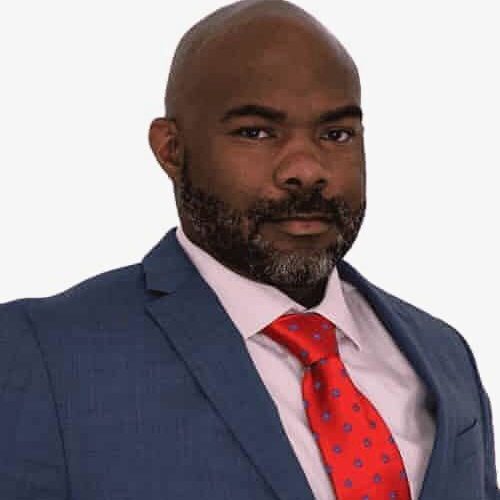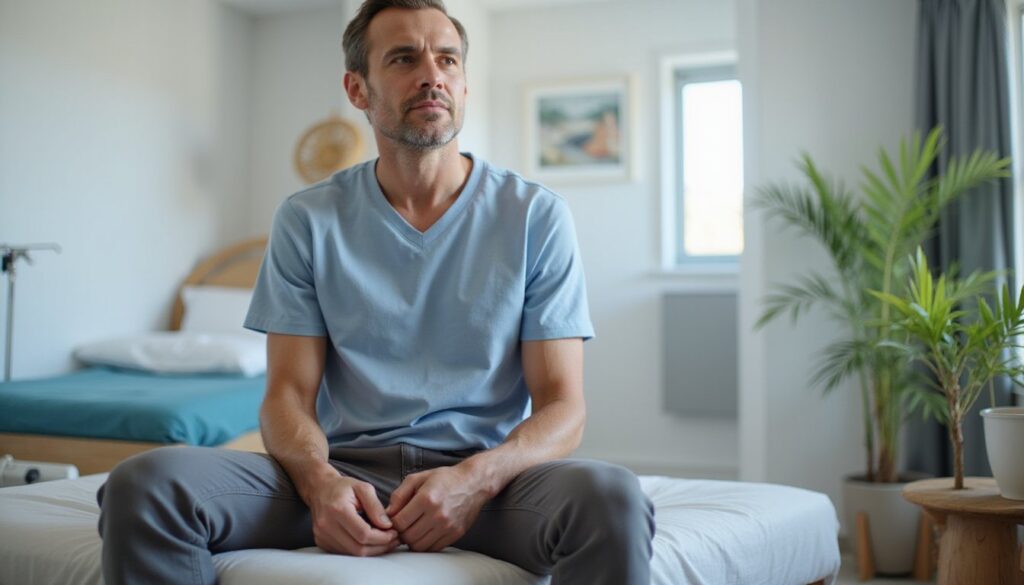When supporting a loved one in recovery, you’ll need five essential resources: family education programs that teach addiction science and communication strategies, peer-led support groups that reduce relapse risk by 7%-25%, professional counseling services offering crisis intervention and behavioral therapy, treatment navigation tools with facility locators and insurance verification, and caregiver well-being resources addressing your own emotional exhaustion. These evidence-based supports work together as an all-encompassing system, helping you establish healthy boundaries while maintaining your own wellness throughout what becomes a full-time caregiving responsibility that affects your entire family unit.
Family Education Programs and Skill-Building Workshops

When a family member struggles with addiction, the entire family system feels the impact, yet most families enter this crisis without adequate knowledge or tools to help effectively. Family education programs address this gap by teaching addiction science, relapse warning signs, and communication strategies that support recovery. Through multi-family therapy groups and structured workshops, you’ll learn to identify enabling behaviors, establish healthy boundaries, and rebuild trust damaged by substance use.
Skill-building workshops use role-playing and scenario planning to practice conflict resolution and parenting techniques relevant to addiction contexts. Programs that integrate parenting supports with substance use disorder treatment have proven particularly effective, as they address both recovery and family dynamics simultaneously. Family-based treatment models consistently demonstrate superior effectiveness compared to other therapeutic approaches, making them essential components of comprehensive addiction care. While customized curriculum design remains inconsistent across programs, trauma-informed approaches incorporating family outcome metrics demonstrate the strongest results, with completion rates reaching 81–92% and satisfaction ratings consistently above 90% among participating families. These educational interventions are especially critical given that up to 90% of individuals with active addiction live at home with family or a significant other.
Support Groups and Peer-Led Recovery Networks
The isolation that accompanies a family member’s addiction often feels insurmountable, but you’re not alone in this struggle. Peer-led recovery networks like Alcoholics Anonymous, SMART Recovery, and faith-based recovery groups offer evidence-based support that reduces relapse risk by 7%–25%. These communities provide experiential knowledge and mentorship that formal treatment can’t always replicate.
Family-focused groups such as Al-Anon and Nar-Anon strengthen relationships while reducing your guilt and isolation. Research shows 85% of participants report improved personal value, and 77% experience greater connection. Whether you’re maneuvering early recovery or coordinating sober living arrangements, peer support extends your continuum of care beyond clinical settings. Clients who reach the 2-year milestone without relapse have a 90% likelihood of maintaining sobriety for 10 years.
Active involvement, both in-person and online, creates sustainable recovery ecosystems. You’ll access emotional, tangible, and affectionate support that correlates directly with long-term sobriety success. Remarkably, over 54% achieve recovery without ever entering formal treatment programs, demonstrating the profound impact of peer-led and community-based approaches. These peer connections also deliver mutual benefits for facilitators, including increased self-esteem, confidence, and improved coping ability.
Professional Counseling Services and Crisis Helplines

Professional counseling provides structured, evidence-based interventions that peer support can’t always deliver, especially during acute crises or when underlying mental health conditions complicate your family member’s addiction. Family therapy utilizes family systems perspectives to address relational dynamics and communication patterns that influence recovery outcomes.
Key therapeutic approaches include:
- Behavioral couples therapy strengthens therapeutic alliance development between partners while improving abstinence rates
- Individual and group sessions customized to your family’s unique constellation and needs
- Crisis helplines (like SAMHSA’s National Helpline) offering confidential 24/7 support and immediate resource connections
Research shows family involvement dramatically increases treatment retention and reduces relapse risk. However, stigma and emotional exhaustion remain barriers. Despite nearly 4 million people receiving treatment in 2020, a substantial gap persists; approximately 40 million Americans needed but didn’t access services. Studies demonstrate that every dollar invested in substance abuse therapies saves $4 to $7 in healthcare and criminal justice costs, making professional counseling services a cost-effective intervention for families and communities alike.
Treatment Navigation Tools and Facility Locators
Finding appropriate treatment for a loved one can feel overwhelming, but modern navigation tools have transformed this search into a more manageable process. FindTreatment.gov, SAMHSA’s official federal directory, provides extensive search functionality that filters facilities by location, insurance acceptance, program type, and specialized services, all through a confidential, anonymous interface.
You’ll find comparison features that highlight evidence-based practices implemented at each facility, alongside outcome tracking metrics when available. Insurance verification tools offer immediate eligibility results while maintaining HIPAA compliance. For families without insurance coverage, faith-based directories like The Salvation Army’s Harbor Light Centers list no-cost residential programs. These 180-day residential work-therapy programs provide spiritual, social, and emotional assistance to adults facing substance abuse challenges.
State-specific platforms and localized networks provide detailed facility profiles, including therapeutic approaches, dual diagnosis capabilities, and aftercare planning, helping you match your loved one’s specific needs with appropriate care environments. Many facilities now offer same-day admission options, allowing families to connect their loved ones to treatment immediately when they’re ready to accept help. Nationally, only 11% of people who need substance abuse treatment actually receive it, making early navigation of available resources even more critical for families supporting a loved one in recovery.
Caregiver Well-Being Resources and Self-Care Support

While supporting a loved one through addiction recovery demonstrates profound compassion, this role carries substantial emotional and physical costs that you shouldn’t minimize or ignore. Research shows caregivers experience confusion, anger, anxiety, and depression, while older caregivers face concerning rates of chronic disease (53.4% report multiple conditions). Healthcare providers frequently overlook these needs, making self-advocacy essential.
Evidence-based self-care strategies that effectively reduce caregiver burden include:
- Attending support groups and online counseling to process experiences and combat isolation
- Engaging in mindfulness-based activities that help manage stress and regulate emotions
- Implementing holistic wellness approaches addressing physical, emotional, and social health dimensions
Many caregivers report that providing care becomes a full-time responsibility that gradually wears down their own health and well-being. When your loved one achieves abstinence, research demonstrates greatly improved caregiver satisfaction (mean score 2.41 vs. 1.29) and boosted self-esteem, validating your investment in extensive self-care. Recognizing positive aspects of caregiving, such as gaining a sense of control and mastery over difficult situations, can significantly improve your mental health and contribute to better treatment outcomes for your loved one. Understanding that caregiving burden increases the risk of developing your own addiction issues is crucial, as studies show that higher stress levels correlate with substance use among caregivers themselves.
Frequently Asked Questions
How Do I Talk to My Employer About Needing Time off for Family Recovery Support?
Schedule a confidential meeting with HR to request FMLA leave, emphasizing your need to support a family member’s serious health condition. Open communication about your situation, paired with advance notice and completed medical certification, protects your legal rights. Discuss flexible scheduling options if intermittent leave works better than continuous time off. Document all conversations and submitted forms. You’re entitled to job protection and continued benefits while supporting your loved one’s recovery process.
What Legal Rights Do Families Have When Advocating for Treatment Decisions?
Your legal rights depend on your loved one’s tenure and state laws. For minors, you’ll generally have stronger authority over treatment decisions, though many states allow adolescents to access substance abuse treatment independently. With adults, you’re more limited unless pursuing involuntary commitment options when they’re a danger to themselves or others. You can also request court-ordered treatment programs through family court proceedings, especially when custody or safety concerns exist. Consult a local attorney for state-specific guidance.
How Can I Protect Family Finances During a Loved One’s Active Addiction?
You’ll need to implement strict budgeting strategies that separate essential household funds from accessible accounts. Establish dual-signature requirements for withdrawals, limit card access, and create dedicated accounts for bills. Build an emergency savings plan to cover unexpected legal or medical costs. Monitor transactions regularly for unusual activity. Consider legal safeguards like financial power of attorney, and utilize community resources for financial counseling. These protective measures help maintain family stability while supporting your loved one’s recovery process.
Should We Involve Extended Family Members or Keep Recovery Support Private?
You’ll need to balance involving your wider social circle with maintaining family boundaries based on your loved one’s needs and consent. Start with immediate family who can provide consistent, informed support, then consider extending involvement through structured settings like multi-family therapy. Not every relative will strengthen recovery; some may enable or increase stress. Work with treatment professionals to assess which relationships are supportive versus harmful, ensuring privacy protects your loved one while maximizing effective support systems.
How Do I Balance Supporting Recovery While Maintaining Healthy Relationships With Other Children?
Balance support by scheduling dedicated one-on-one time with each child and maintaining consistent family routines. You’ll need to practice setting boundaries that prevent over-focusing on recovery while fostering self-care for yourself and siblings. Use stage-appropriate conversations about addiction to reduce confusion, and monitor all children’s emotional needs. Consider family therapy to navigate shifting dynamics. Remember, equitable attention and clear role definitions protect non-affected siblings from resentment while strengthening your entire family system.











